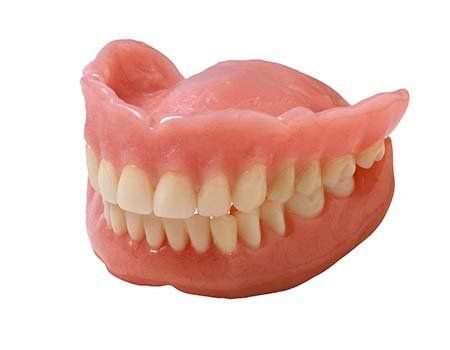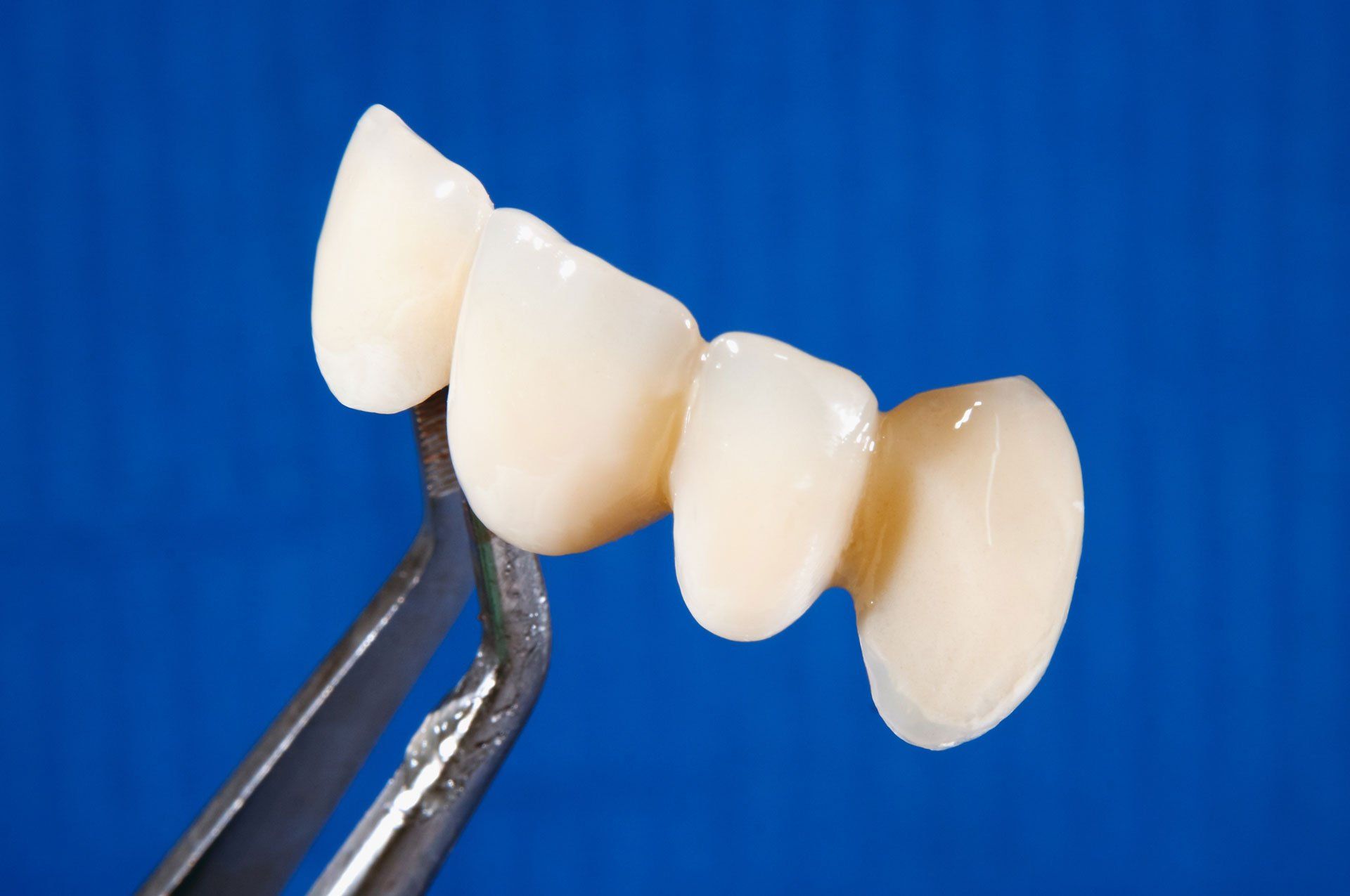What Dental Patients Should Know About 6 Types of Dentures
Adult tooth loss can be one of the most intimidating and even embarrassing conditions you may experience. When you lose permanent teeth, you may also experience changes in how you eat, speak and smile. Luckily, modern dentistry allows patients to replace missing teeth with long-lasting dental appliances, including dentures.
1. CUSTOM COSMETIC
Custom cosmetic dentures
are high-quality dental appliances that defy many of the common misconceptions about dentures. These dentures are created using individual false teeth that appear almost identical to natural teeth in color and transparency.
While custom cosmetic dentures can initially cost more than other types of dentures, many patients choose these dentures because the custom look fully restores a natural-looking smile.
2. FULL
The dentures you may think of immediately when you hear the term are probably a set of full dentures. These traditional dentures sometimes get a bad rap, but modern full dentures can be a smart option for many patients.
Full dentures replace all upper, all lower, or all the teeth. Technically, custom cosmetic, immediate and even some implant-supported dentures can also be categorized as full dentures.
The efficacy of full dentures depends on the materials they're made out of and how they fit in the patient's mouth. For example, cheaper, low-quality dentures are one of the most affordable tooth replacement options available, but they can be uncomfortable and difficult to keep in place.
On the other hand, custom dentures can provide more security and a more real appearance.
3. IMMEDIATE
Immediate dentures are a fast tooth replacement option that can be placed in the mouth immediately following a tooth removal procedure. These dentures prevent patients from having to leave the office without a tooth replacement.
However, immediate dentures are usually only a temporary measure. Patients may wear immediate dentures while having their other dentures made, or getting a new immediate denture once the fit of their original set changes.
4. IMPLANT-SUPPORTED
Traditional dentures fit over the gums and may be kept in place with dental adhesive. But for some patients, this type of denture placement does not offer adequate stability. These patients may feel more comfortable with implant-supported dentures.
Implant-supported dentures are attached to titanium screws placed in the jawbone. These screws anchor the dentures to decrease the amount of movement during normal activities.
5. PARTIAL
While many types of dentures are intended to replace all the teeth in either the upper or lower jaw, dentures can also be used to replace as few as three consecutive missing teeth. Partial dentures are most often used to replace the back teeth on both sides if the patient's front teeth are intact.
These partial dentures consist of false back teeth on gums like full dentures. These are connected behind the front teeth either with a section of metal or gum-colored dental plastic. These partial dentures fit like an orthodontic retainer.
6. SNAP-ON
Snap-on dentures are a form of partial dentures that are typically used to replace front teeth. These false teeth are designed to fit snugly against the remaining natural teeth on either side of the gap.
Patients can easily take these dentures out and put them back in by snapping them into place.
If you currently have missing teeth or have scheduled a procedure that will remove several teeth, discuss your options with your dentist, such as Halls, Gregory B DMD. Dentures may be the most cost-effective, natural-looking tooth replacement for you.







